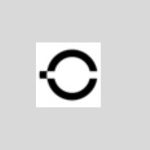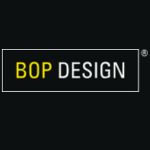
Top Medical Software Development Companies
Welcome to our comprehensive guide to the top Medical Software Development Companies! In today’s healthcare landscape, technology plays a crucial role in improving patient care, enhancing efficiency, and streamlining operations. Our curated list features the leading companies specializing in developing innovative software solutions tailored specifically for the medical industry. From electronic health records (EHR) systems and practice management software to telemedicine platforms and medical imaging software, these companies offer a diverse range of products and services to meet the unique needs of healthcare providers and organizations. With detailed reviews and insights, we empower you to make informed decisions and choose the best partner for your medical software needs.
List of the Best Medical Software Development Companies

-
Employees: 10 - 49
-
Min. Project amount: $50,000+
-
Country: NJ, United States

Halo Lab
-
Employees: 50 - 249
-
Min. Project amount: $10,000+
-
Country: Escaldes-Engordany, Andorra

Clay
-
Employees: 10 - 49
-
Min. Project amount: $50,000+
-
Country: CA, United States

Outliant
-
Employees: 50 - 249
-
Min. Project amount: $50,000+
-
Country: TX, United States

Bop Design
-
Employees: 10 - 49
-
Min. Project amount: $25,000+
-
Country: CA, United States

DD.NYC®
-
Employees: 10 - 49
-
Min. Project amount: $10,000+
-
Country: NY, United States

Dotlogics
-
Employees: 50 - 249
-
Min. Project amount: $25,000+
-
Country: NY, United States

500 Designs
-
Employees: 50 - 249
-
Min. Project amount: $50,000+
-
Country: CA, United States

Lounge Lizard
-
Employees: 10 - 49
-
Min. Project amount: $25,000+
-
Country: NY, United States

AlgoRepublic
-
Employees: 251-500
-
Min. Project amount: $10,000+
-
Country: Lahore, Pakistan
** Buyer's Guide **
- 1. What specific types of medical software solutions do these companies offer?
- 2. Can medical software solutions be customized to meet the unique needs of my healthcare practice or organization?
- 3. How user-friendly are the medical software solutions for healthcare professionals with varying levels of technical expertise?
- 4. Are the medical software solutions compliant with industry regulations and standards, such as HIPAA for patient data protection?
1.What specific types of medical software solutions do these companies offer?
Top medical software development companies offer a variety of solutions tailored to the healthcare industry, including electronic health record (EHR) systems, practice management software, telemedicine platforms, medical billing and coding software, medical imaging solutions, and patient engagement applications.
The medical software landscape is vast, catering to various needs within the healthcare industry. Here’s a breakdown of some of the most common types of medical software solutions offered by leading development companies:
Electronic Health Record (EHR) Systems: EHRs are the cornerstone of modern healthcare, acting as digital repositories for a patient’s medical history, medications, allergies, immunizations, and other vital information. These systems improve care coordination, enhance patient engagement, and streamline workflows for healthcare providers.
Practice Management Software: Streamline administrative tasks in your medical practice with software solutions for appointment scheduling, patient billing, insurance verification, claims management, and inventory management.
Telemedicine Platforms: Facilitate remote patient consultations and expand access to healthcare with telemedicine platforms. These solutions enable secure video conferencing between patients and providers, fostering convenient and efficient care delivery.
Medical Billing and Coding Software: Ensure accurate and efficient medical billing with software that automates coding procedures, generates claims, tracks payments, and manages denials.
Medical Imaging Solutions: Store, manage, and analyze medical images (X-rays, MRIs, CT scans) with specialized software solutions. These tools enhance diagnostic capabilities, improve collaboration between healthcare professionals, and optimize patient care.
Patient Engagement Applications: Empower patients to take charge of their health with patient engagement apps. These applications offer features like appointment reminders, medication tracking, secure communication with providers, and access to personal health records.
Hospital Management Systems: For hospitals and large healthcare facilities, comprehensive hospital management systems integrate various functionalities. These systems manage patient admissions, discharges, transfers, resource allocation, inventory management, and financial reporting.
Laboratory Information Management Systems (LIMS): Laboratories leverage LIMS to automate workflows, manage samples, track test results, and ensure accurate reporting.
Pharmacy Management Software: Optimize pharmacy operations with software solutions for prescription processing, inventory control, medication dispensing, and patient medication adherence programs.
Dental Practice Management Software: Streamline workflows in your dental practice with specialized software that caters to appointment scheduling, dental charting, treatment planning, insurance claim processing, and digital X-ray management.
Beyond this list, many companies offer custom development services to create bespoke solutions tailored to the specific needs of your medical practice or healthcare facility. By understanding the range of available medical software solutions, you can identify the ones that best align with your specific requirements and enhance patient care delivery within your healthcare organization.
2.Can medical software solutions be customized to meet the unique needs of my healthcare practice or organization?
Yes, reputable medical software development companies understand the diverse needs of healthcare providers and organizations. They typically offer customizable solutions that can be tailored to align with specific workflows, specialties, and requirements.
Customization is a key strength of leading medical software development companies. Here’s a closer look at how they can tailor solutions to perfectly match the specific needs of your healthcare practice or organization:
One-Size Doesn’t Fit All: Tailoring Medical Software to Your Unique Needs
The beauty of working with a qualified medical software development company lies in their ability to craft solutions that perfectly complement your healthcare delivery model. Here’s how customization comes into play:
Understanding Your Needs: The development process begins with a thorough needs assessment. The company will work with you to understand your specific workflows, specialties, patient population, and any unique requirements you may have.
Configurable Solutions: Many EHR systems, practice management software solutions, and other medical software products come equipped with modular components. These components can be selected and configured to match your specific functionalities and user needs. For instance, a pediatrics practice might prioritize features for growth charts and immunization tracking, while a cardiology practice might require functionalities for managing EKG results and scheduling stress tests.
Custom Development: For highly specialized needs or unique integrations with existing equipment, some companies offer custom development services. This allows them to create bespoke software features or functionalities that cater to your specific requirements. For example, a large hospital system might require custom integrations with their laboratory information system (LIMS) or a radiology department might need software tailored for managing specific imaging equipment.
Workflow Optimization: The software can be customized to streamline your existing workflows, improving efficiency and reducing administrative burdens on your staff. For instance, appointment scheduling functionalities can be tailored to accommodate your specific scheduling preferences and patient flow.
Reporting and Analytics: Customization extends to reports and analytics functionalities. The software can be configured to generate reports that provide insights relevant to your specific practice or organization. For instance, a physical therapy practice might prioritize reports on patient progress and treatment outcomes.
Benefits of Customization:
- Improved Patient Care: Tailored software solutions empower you to deliver more efficient and effective patient care, catering to their specific needs and conditions.
- Enhanced Staff Efficiency: Streamlined workflows and user-friendly interfaces reduce administrative burdens and allow your staff to focus on patient interaction.
- Competitive Advantage: Unique functionalities or integrations can differentiate your practice from competitors and attract new patients.
Finding the Right Fit:
Discuss Customization Options: When evaluating potential medical software development companies, inquire about their customization capabilities. Discuss your specific needs and ensure they have the expertise to tailor their solutions accordingly.
Case Studies and References: Review case studies showcasing how the company has customized solutions for clients in similar healthcare specialties or practice types. Speak to references to gain insights into their experience with the customization process.
By partnering with a medical software development company that prioritizes customization, you can ensure that your healthcare practice or organization benefits from software solutions that perfectly align with your unique needs, optimize workflows, empower your staff, and ultimately enhance patient care delivery.
3.How user-friendly are the medical software solutions for healthcare professionals with varying levels of technical expertise?
The best medical software solutions are designed to be intuitive and user-friendly, with interfaces that are easy to navigate for healthcare professionals. Look for companies that prioritize usability and provide comprehensive training and support resources.
Usability is paramount in medical software. Here’s how leading developers ensure their solutions cater to healthcare professionals with varying technical expertise:
User-Centric Design for All: Bridging the Tech Gap in Medical Software
Effective medical software empowers healthcare providers to focus on patient care, not wrestling with complex technology. Here’s what to look for:
Intuitive Interfaces: Clean and user-friendly interfaces are key. Menus, buttons, and functionalities should be logically organized and easy to understand for users with varying technical backgrounds.
Minimal Cognitive Load: The software should minimize the mental effort required for navigation and data entry. This allows healthcare professionals to focus on their patients, not deciphering complex software features.
Contextual Help: Readily available contextual help guides within the software can provide immediate assistance and answer quick questions without requiring users to delve into lengthy manuals.
Customization Options: An ideal solution offers some level of customization to user preferences. This allows healthcare professionals to personalize the interface layout or functionalities to suit their individual workflow or comfort level.
Role-Based Access Control (RBAC): RBAC ensures that users only see the functionalities relevant to their specific roles within the healthcare organization. This reduces clutter and simplifies the user experience for staff with varying levels of access.
Beyond Software Design: Building User Confidence
Comprehensive Training: Reputable software development companies provide comprehensive training programs for their medical software solutions. These programs should cater to users with varying technical skillsets and ensure all staff members feel confident and comfortable utilizing the software effectively.
Ongoing Support: Readily available technical support is crucial. Look for companies that offer multiple support channels (phone, email, online ticketing systems) to address user queries and troubleshoot any issues promptly.
User Community: Some vendors foster online user communities where healthcare professionals can share best practices, tips, and ask questions amongst themselves. This can be a valuable resource for users to learn from each other and address challenges.
By prioritizing user-friendliness, comprehensive training, and ongoing support, leading medical software development companies ensure that their solutions empower healthcare professionals of all technical backgrounds to leverage the software effectively, optimize workflows, and ultimately deliver superior patient care.
4.Are the medical software solutions compliant with industry regulations and standards, such as HIPAA for patient data protection?
Yes, leading medical software development companies prioritize compliance with industry regulations and standards, such as HIPAA (Health Insurance Portability and Accountability Act), to ensure the security and privacy of patient data.
HIPAA compliance is paramount in the realm of medical software. Reputable development companies prioritize safeguarding patient privacy and adhering to strict regulations. Here’s what to ensure HIPAA compliance when choosing medical software:
HIPAA: The Bedrock of Patient Data Security
The Health Insurance Portability and Accountability Act (HIPAA) mandates the protection of sensitive patient data. Here’s how leading medical software development companies ensure their solutions comply with HIPAA regulations:
Security Rule: The HIPAA Security Rule outlines safeguards to protect electronic protected health information (ePHI) This includes measures for access control, data encryption, audit trails, and risk assessments. Look for vendors that guarantee their software adheres to these security protocols.
Privacy Rule: The HIPAA Privacy Rule governs the use, disclosure, and access to patients’ protected health information. The software should restrict access to authorized personnel only and provide patients with control over their data.
HIPAA Compliance Documentation: Request HIPAA compliance documentation from potential software vendors. This documentation should detail how the software meets HIPAA regulations and how they handle patient data security.
Business Associate Agreements (BAAs): When using a third-party medical software solution, a BAA is crucial. This agreement outlines the responsibilities of both parties regarding patient data privacy and security. Ensure the vendor has a standardized BAA readily available.
Beyond HIPAA:
- Additional Regulations: Depending on your location, additional regulations may apply. The software vendor should stay up-to-date on relevant data privacy regulations and ensure their solutions comply.
Why Prioritize HIPAA Compliance?
Patient Trust: HIPAA compliance demonstrates your commitment to safeguarding sensitive patient data, fostering trust and confidence within your healthcare organization.
Reduced Risk of Breaches: Robust security measures minimize the risk of data breaches and associated financial penalties.
Compliance Audits: HIPAA compliance ensures you’re prepared for potential audits by regulatory authorities.
Partnering for Patient Data Security
By choosing a medical software development company that prioritizes HIPAA compliance and implements robust security measures, you can ensure that patient data is protected, trust is maintained, and your organization remains on the right side of healthcare regulations.



